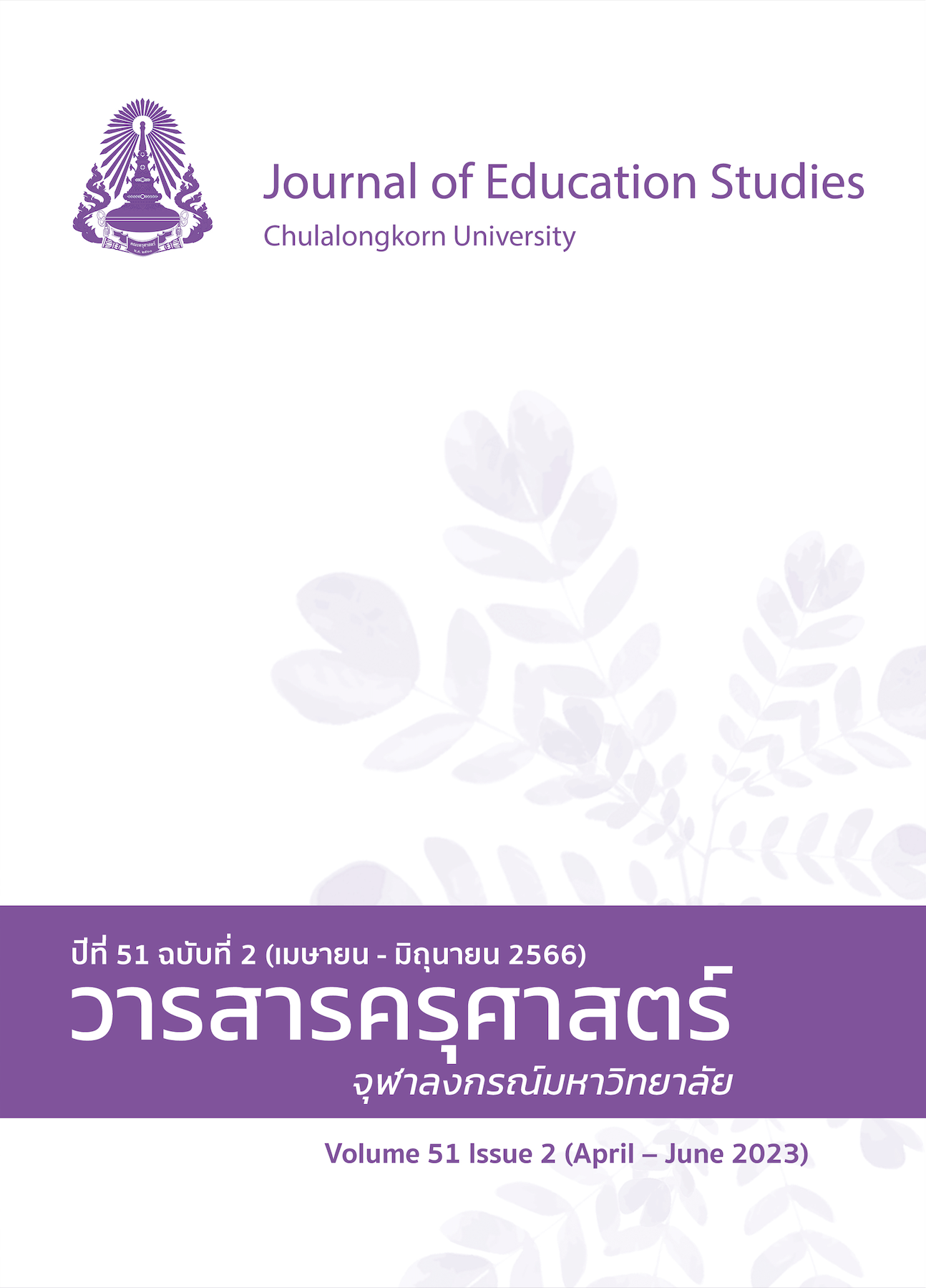Smart Communications: Boosting Mental Health Literacy
DOI:
https://doi.org/10.14456/educu.2023.18Keywords:
smart communications, mental health literacy, boostingAbstract
The prevalent public health measures against the spread of the COVID-19 disease like social distancing guidelines are necessary but they can make us feel isolated and lonely. Young people are even more vulnerable. Medical professionals have acknowledged the existence of COVID-induced stress and its insidious creep into the fabric of student life. Sadly, open discussions on mental health issues are often viewed as a form of weakness, if not a taboo, among students. This project aims to describe university students’ thoughts and perceptions of the mobile app (StudyBird) to enhance their learning experience under the social-distancing mandates and beyond. The concept of StudyBird is similar to a taxi-hiring app that connects randomly available students (both local and international students) to perform their shared social/sports/learning activities together. Once students shared their locations and activities, the system will automatically match the closest students with similar shared activities together. Our app promotes and allows students from diverse cultural backgrounds to meet and mingle with one another. The preliminary results from the three test groups (n=29) indicated positive user feedback, especially about enlarging their social networks in their trusted environment, i.e. our campus. Activity matching in the app and the stability of our app are yet to improve.
References
References
Aknin, L. B., Van de Vondervoort, J. W., & Hamlin, J. K. (2018). Positive feelings reward and promote prosocial behavior. Current Opinion in Psychology, 20, 55–59. https://doi.org/10.1016/ J.COPSYC.2017.08.017
Alvis, L., Douglas, R., Shook, N., & Oosterhoff, B. (2020). Associations between adolescents’ prosocial experiences and mental health during the COVID-19 pandemic. https://doi.org/10.31234/ OSF.IO/2S73N
Basso, J. C., & Suzuki, W. A. (2017). The effects of acute exercise on mood, cognition, neurophysiology, and neurochemical pathways: A Review. Brain Plasticity, 2(2), 127–152. https://doi.org/10.3233/BPL-160040
Brunier, A. (2020). COVID-19 disrupting mental health services in most countries, WHO survey. World Health Organization. https://www.who.int/news/item/05-10-2020-covid-19-disrupting-mental-health-services-in-most-countries-who-survey
Bu, F., Steptoe, A., & Fancourt, D. (2020). Loneliness during lockdown: Trajectories and predictors during the COVID-19 pandemic in 35,712 adults in the UK. Social Science & Medicine, 265, 113521. https:// doi.org/10.1101/2020.05.29.20116657
Daoust, J. F. (2020). Elderly people and responses to COVID-19 in 27 Countries. PLoS ONE, 15(7). https:// doi.org/10.1371/JOURNAL.PONE.0235590
Groarke, J. M., Berry, E., Graham-Wisener, L., McKenna-Plumley, P. E., McGlinchey, E., & Armour, C. (2020). Loneliness in the UK during the COVID-19 pandemic: Cross-sectional results from the COVID-19 Psychological Wellbeing Study. PLoS ONE, 15(9). https://doi.org/10.1371/JOURNAL. PONE.0239698
Helliwell, J. F., Layard, R., & Sachs, J. (2012). World Happiness Report 2012 (Update, Vol. I), 2–65. UN Sustainable Development Solutions Network. http://worldhappiness.report/ed/2012/
Heidinger, T., & Richter, L. (2020). The effect of COVID-19 on loneliness in the elderly. An empirical comparison of pre-and peri-pandemic loneliness in community-dwelling elderly. Frontiers in Psychology, 11. https://doi.org/10.3389/FPSYG.2020.585308
Lai-Reeve, S. (2021, May 28-30). Talking to yourself: Reflective processing of EAP [Paper presentation]. CEAPA-BALEAP International Conference. Suzhou: Xian Jiatong-Liverpool University.
Lingnan University. (2020). LU survey shows over 60% of Hong Kong university students have found online learning not as effective as face-to-face teaching during COVID-19 pandemic. Lingnan Touch, 104. https://www.ln.edu.hk/lingnan-touch/104/lu-study-reveals-over-60-of-hong-kong-university-students-have-found-online-learning-not-as-effective-as-face-to-face-teaching-during-covid-19-pandemic
Nelson, S. K., Layous, K., Cole, S. W., & Lyubomirsky, S. (2016). Do unto others or treat yourself? The effects of prosocial and self-focused behavior on psychological flourishing. Emotion, 16(6), 850–861. https://doi.org/10.1037/EMO0000178
O’Connor, R. C., Wetherall, K., Cleare, S., McClelland, H., Melson, A. J., Niedzwiedz, C. L., O’Carroll, R. E., O’Connor, D. B., Platt, S., Scowcroft, E., Watson, B., Zortea, T., Ferguson, E., & Robb, K. A. (2021). Mental health and well-being during the COVID-19 pandemic: Longitudinal analyses of adults in the UK COVID-19 mental health & wellbeing study. British Journal of Psychiatry, 218(6), 326–333. https://doi.org/10.1192/BJP.2020.212
World Health Organization. (2018). Mental health: Strengthening our response. https://www.who.int/news-room/fact-sheets/detail/mental-health-strengthening-our-response
World Health Statistics. (2021). World Health Organization. https://www.who.int/data/gho/ publications/ world-health-statistics
Downloads
Published
How to Cite
Issue
Section
License

This work is licensed under a Creative Commons Attribution-NonCommercial-NoDerivatives 4.0 International License.




